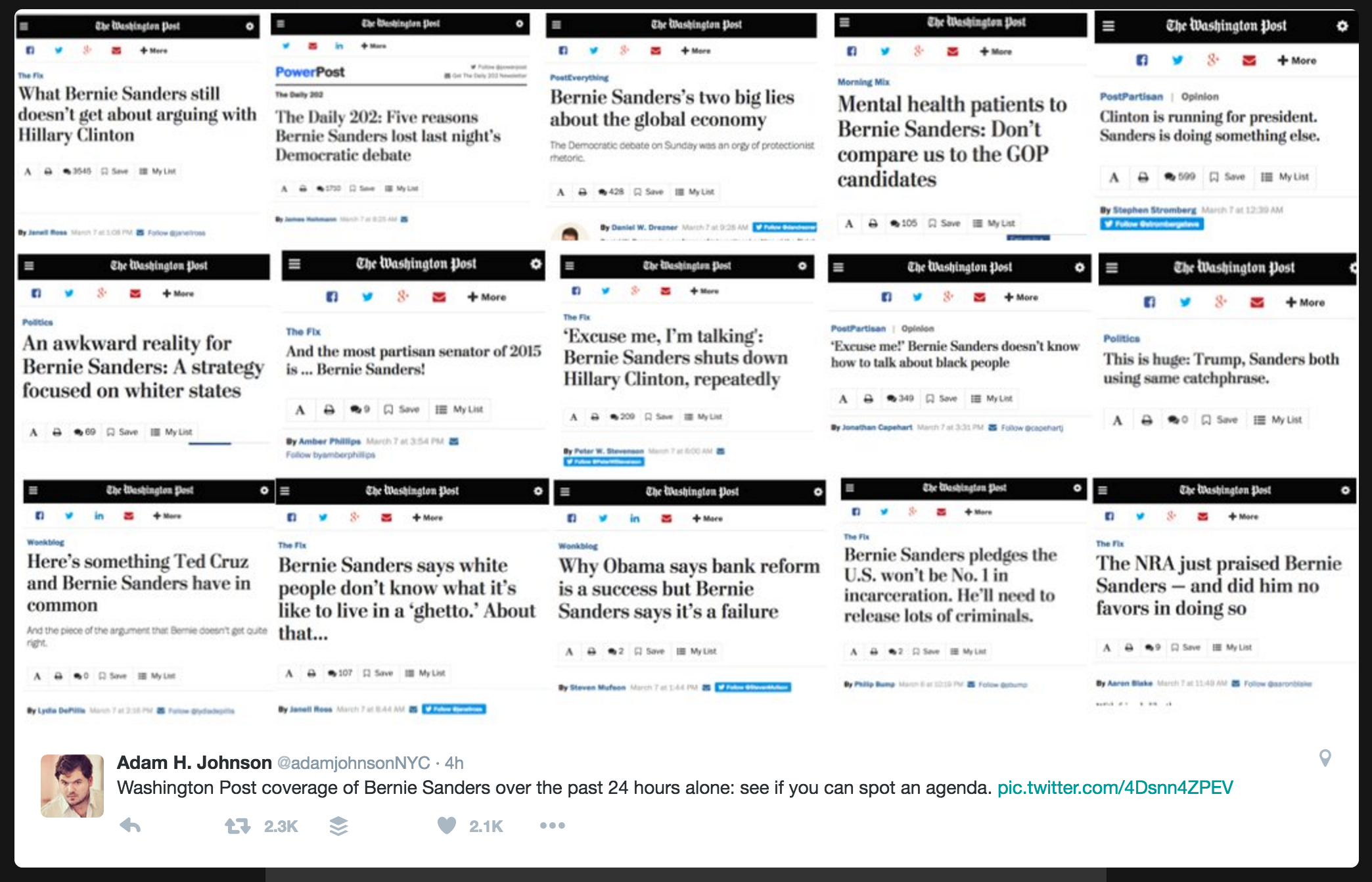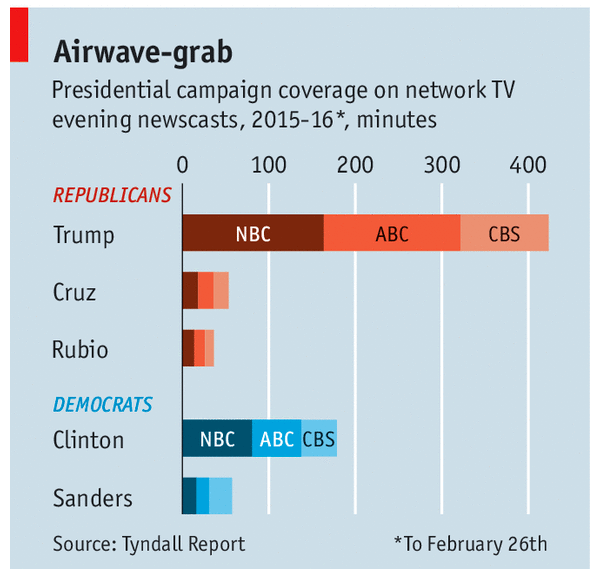UPDATED. If you’re supporting any candidate for President other than Donald Trump or Hillary Clinton, here’s a chart from The Economist you can show your friends to support your claim of TV news bias. Because it’s real, not imaginary.
The big three networks have given Trump more than eight times as much exposure on evening TV newscasts (not counting FOX; just ABC, NBC and CBS) as his next closest opponent, Ted Cruz. Clinton has more than three times as much as Bernie Sanders but less than half of Trump’s airtime.
In an analysis closer to home, Adam Johnson at FAIR documents 16 hours of Washington Post coverage of Bernie Sanders. Got hate? Sure looks like it.
The Washington Post ran 16 negative stories on Bernie Sanders in 16 hours, between roughly 10:20 PM EST Sunday, March 6, to 3:54 PM EST Monday, March 7—a window that includes the crucial Democratic debate in Flint, Michigan, and the next morning’s spin. (emphasis added)
Headlines matter. A lot. And not just because of shares on Twitter and Facebook.
The American Press Institute discovered that only 4-in-10 Americans claim to “[delve] deeper into a particular news subject beyond the headlines.” That was two years ago. Given information glut, I’d guess the number has fallen.
Moreover, the behavior exhibited by the WaPost is worrisome because of the illusions that result from familiarity. From Thinking, Fast and Slow:
A reliable way to make people believe in falsehoods is frequent repetition, because familiarity is not easily distinguished from truth.
Advertisers have known this for decades. But news? News is supposed to be above that. Today’s TV news is entertainment. And newspapers have lost monopoly rents to disruptive digital media.
Edward R. Murrow warned us in 1964. We just failed to listen.


UPDATE 8 pm Pacific, Tuesday March 7
Michigan v Mississippi?

Which state has voted Democratic every presidential election including and since 2000?
NOT Mississippi.
Which state has the most voters/delegates?
NOT Mississippi.
But that’s not Alex Seitz-Wald’s take on things for MSNBC.
—UPDATED
Here’s why MSNBC thinks Mississippi is more important – even though the state is highly unlikely to Go Blue come November:
Since delegates are awarded proportionately in the Democratic nominating process, a Clinton landslide in Mississippi could impact the overall delegate race more than a narrow win for Sanders in Michigan, despite its size and importance.
The Clinton campaign could not have spun it better.
Probably because that’s exactly how they did spin it.
Known for gnawing at complex questions like a terrier with a bone. Digital evangelist, writer, teacher. Transplanted Southerner; teach newbies to ride motorcycles. @kegill (Twitter and Mastodon.social); wiredpen.com

















